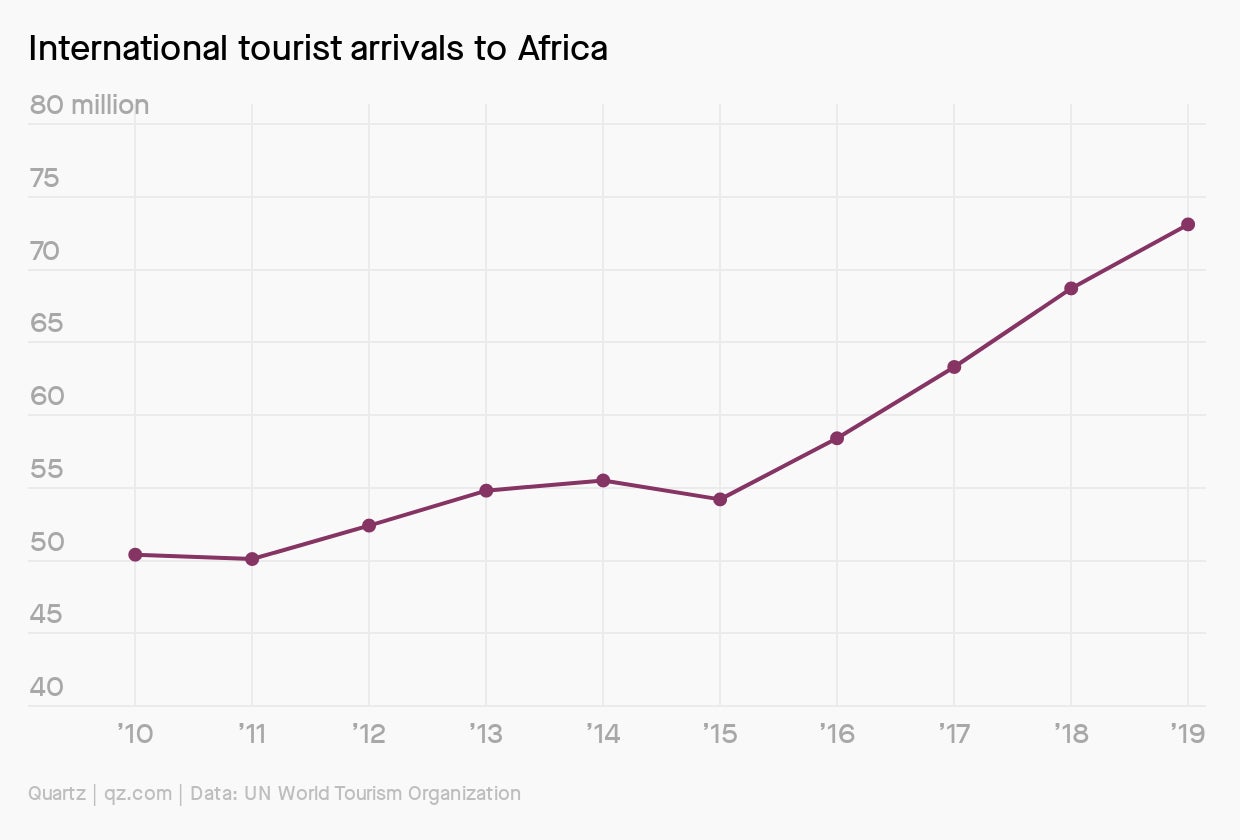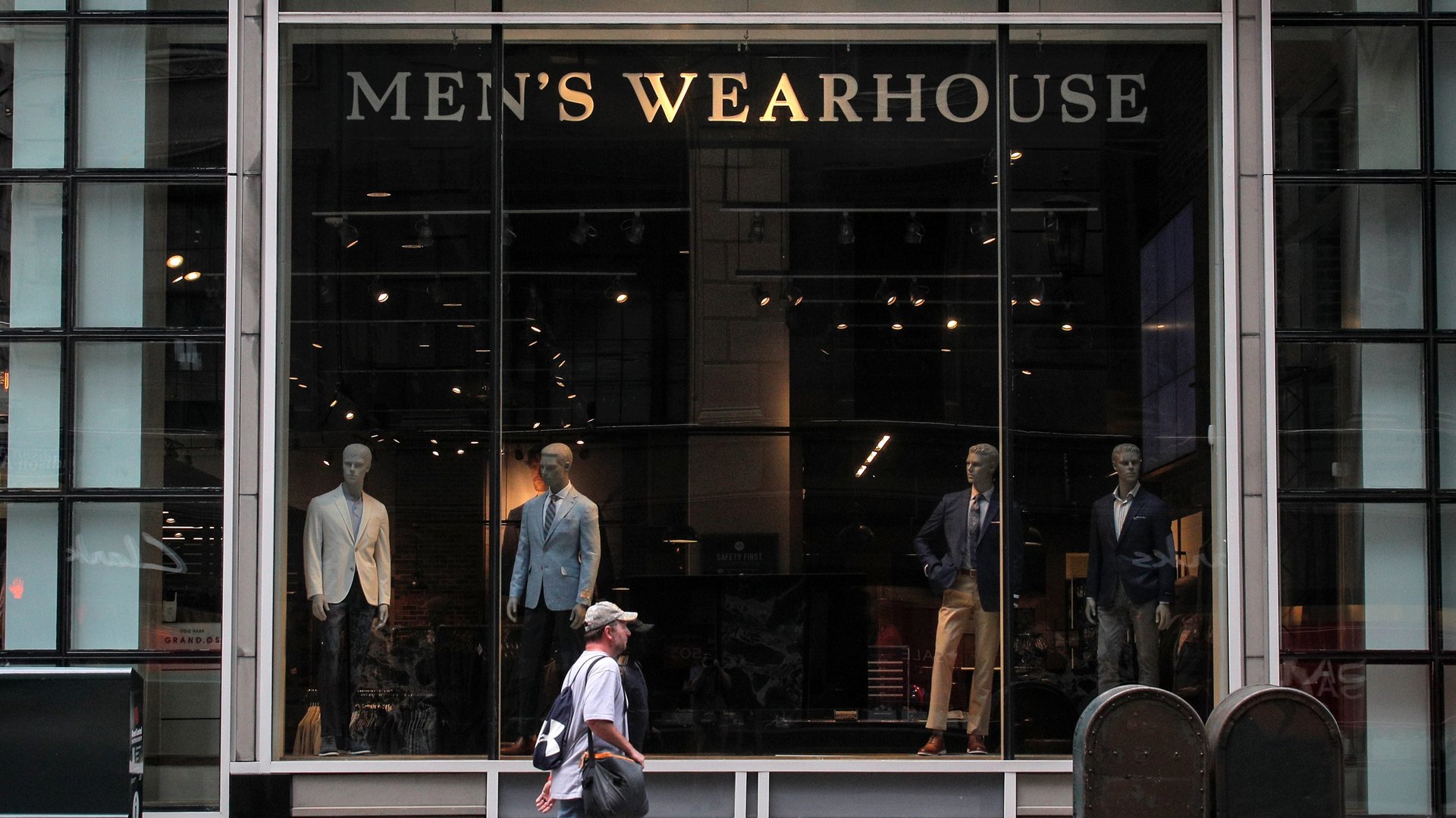Lebanon emergency, Russia’s “vaccine,” large wild dogs
Good morning, Quartz readers!

Good morning, Quartz readers!
Here’s what you need to know
Rescuers are scouring debris in Beirut, with the death toll set to rise. An explosion yesterday at the city’s port killed at least 100 people and injured more than 4,000. It is not yet known what triggered the blast, but president Michel Aoun said that 2,750 tonnes of explosive material had been stored unsafely in a nearby warehouse. On Friday, a UN tribunal in the Netherlands gives its verdict on the 2005 assassination of former prime minister Rafik Hariri.
Disney made a quarterly loss for the first time in nearly 40 years. Revenue fell more than 40%, resulting in $.4.7 billion (paywall) in losses. Theme park closures, limited movie distribution (with Mulan now moving to the Disney+ streaming service), and the suspension of live sports are the major contributing factors.
Virgin Atlantic filed for bankruptcy in the US. The airline, based in the UK, applied for protection from creditors while its global business desperately seeks funds. The British government has refused to bail out any airlines, but Virgin founder Richard Branson said he’s worked out a $1.6 billion rescue package with private money.
A former Google and Uber executive was jailed for 18 months. Anthony Levandowski stole thousands of documents from Google just before he left to head up Uber’s self-driving car division, and was then fired in 2017 over this case. The judge called it the “biggest trade secret crime I have ever seen.“
Cutting corners on vaccines?
As the world races to produce a viable coronavirus vaccine, Russia and China recently claimed to have pulled ahead. But the global scientific community has its doubts, particularly on the safety of these supposed breakthroughs.
🇷🇺 While Russian officials are calling it a “Sputnik moment,” the Gamaleya Research Institute scientists behind a new vaccine have yet to publish data showing that it works, and it doesn’t yet meet World Health Organization standards.
🇨🇳 China is telling state employees it’s safe to use an experimental coronavirus vaccine—even though it has yet to undergo a third phase trial, which would establish efficacy and longer-term safety profiles by following thousands of participants. Scientists warn that no vaccine should be presented as definitively safe and effective while testing is ongoing.
Charting tourism in Africa
Due to extensive experience with past or present epidemics like TB, HIV, and Ebola, African countries were fairly quick to react to news of the coronavirus’s spread by closing borders. Tourism—responsible for 6.8% of the continent’s total employment—is bearing the brunt just after it became the second fastest-growing tourism industry in the world.

The World Travel and Tourism Council’s best-case scenario is a $53 billion hit to GDP across the continent; the worst case is a $120 billion hit.
✦
For members: Cannabis by the digits
The wide world of weed, in number form:
$12.4 billion: Value of the regulated market in 2019
90%: Estimated amount of cannabis still consumed on the black market
$45 billion: Amount the industry is projected to be worth by 2025
~75%: Share expected to come from the US market
Two-thirds: Proportion of Americans who support the legalization of cannabis
33: Number of US states that currently allow cannabis for some form of medical use
11: Number of states that also have recreational or “adult use” programs
Cannabis sits at a unique intersection of medicine, agriculture, consumer packaged goods, food, beverages, and recreation. What might a great modern cannabis industry look like? And how might it be prevented from exacerbating the inequality and exploitation already rampant in American capitalism?
Read more in our field guide on cannabis at a crossroads.
✦ Access all of our articles, presentations, field guides, and workshops by signing up for a Quartz membership.
Suit yourself

Men’s suit sales were in decline long before anyone had ever heard of Covid-19, thanks to the century-long trend of apparel getting more casual and even the most conservative offices loosening up dress codes.
Now, having a business reliant on suit sales is a downright liability.
While some smaller upstarts selling custom suits have managed to establish footholds in the US in recent years, mass-market suit sellers have had little choice but to change up their offerings. Even those who had already seen the writing on the wall and begun pivoting to more casual clothes could never have anticipated quite how casual apparel was about to get when workers were forced to spend a whole lot more time at home.
Surprising discoveries
Penguin poop was spotted from space. Scientists identified new colonies of Emperor penguins by looking at satellite images with telltale reddish-brown stains on otherwise white Antarctic snow.
A long-lost family cat was found 12 years later. The feline, which vanished while on a family holiday in Scotland, was located after an animal charity scanned its microchip.
An “SOS” written in the sand actually worked. Three Micronesian men were stranded on a deserted island and used the code to signal rescue helicopters.
Poisoning dingoes just made them bigger. The surviving wild dogs had less competition for food, which boosted their body size over generations.
Chipotle is putting all those avocado pits to good use. The US restaurant chain launched a new fashion line featuring clothes and accessories that are naturally dyed using guacamole byproducts.
Our best wishes for a productive day. Please send any news, comments, penguin poop, and avocado pants to [email protected]. Get the most out of Quartz by downloading our app on iOS and becoming a member. Today’s Daily Brief was brought to you by Hasit Shah, Olivia Goldhill, Jackie Bischof, Liz Webber, and Susan Howson.